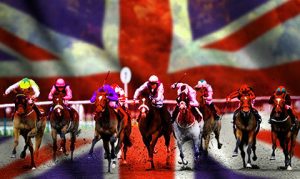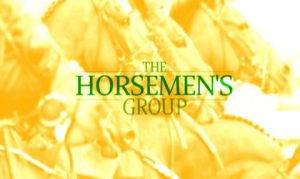British horseracing recovery plan published
[ad_1]
In the United Kingdom, leading horse racing bodies have agreed on a recovery plan for British racing that seeks to restore revenues and racing activities that have been affected by the coronavirus pandemic.
Published on August 25, 2020, the British Horseracing Authority (BHA), Racecourse Association (RCA), and The Horsemen’s Group’s “A Recovery Plan for British Racing” builds on the initial plan for responding to COVID-19 published in March when racing was first suspended in Great Britain.
“This plan brings together all the necessary components in one clear action plan with some ambitious goals.”
According to the BHA, while a “wide range of work” has been ongoing since racing’s restart on June 1st, the newly-published plan puts added emphasis on “retaining owners and key investors” and drawing customers back to the stands when the public starts returning to racecourses. Within the recovery plan, the return of spectators in “significant numbers” is a “key priority” and vital for the restoration of “economic prosperity” of racing for next year and beyond.
Unified approach:

BHA Chief Executive Nick Rust commented on the publication of the plan…
‘It’s very important that this plan has been agreed by leaders from all parts of the racing industry. We know from the way we prepared to resume racing in June that working together works. The commitment shown by leaders in signing up to this recovery plan demonstrates a continued willingness to maintain a unified approach through the tough battles ahead’.
Core objectives:
Three key goals lead UK racing’s joint recovery plan (pdf):
- Establishing a fixtures program for 2021 which can best accommodate racing owner costs, while maintaining its appeal to the general public.
- To maintain the industry’s cost-base as low as possible, retaining owners and the sport’s investor appeal, while leadership pushes for an immediate levy reform.
- To secure sustainable future foundations for the long-term growth of UK racing and its stakeholders weathering a recession.
In the press release, David Armstrong, Chief Executive for the Racecourse Association, said:
“The whole industry worked very well to enable Racing to return as the first major sport behind closed doors. Now we have to renew that collaboration as we enter this Recovery Phase and move beyond that into 2021. This plan brings together all the necessary components in one clear action plan with some ambitious goals. From a racecourse perspective the return of racegoers and the experience for owners are clear priorities that are already underway and we look forward to the wider recovery of the sport”

“It is imperative that we focus on the vital drivers that keep our sport going and growing.”
A carryover from the initial plan for responding to COVID-19 which was published in March, the wellbeing and welfare of those who work in the racing industry continues to be emphasized. A Racing Relief Fund has also been established to provide financial support for the prevention of the emergence of equine welfare issues, with details to be published in the coming weeks, according to the presser.
Lastly, the Chief Executive for the Racehorse Owners Association, Charlie Liverton, representing the Horsemen’s Group, said:
“This new recovery plan goes further towards protecting the long term future of our sport and formalizing collaboration between the stakeholders during this difficult period. It is imperative that we focus on the vital drivers that keep our sport going and growing: retaining owners and maximizing the sport’s revenues. There is a lot to be done but I am confident that, working together, we can deliver this vital work for participants across the industry.”
Cheltenham backlash:
Earlier this year, the BHA faced heavy criticism for going ahead with the four-day Cheltenham Festival. Held annually in March, the showpiece festival reportedly attracted more than 250,000 spectators.
The body defended the decision saying it acted in accordance with government advice at the time.
Triple Crown schedule:
Meanwhile, in the US, Churchill Downs Incorporated (Nasdaq: CHDN) recently announced it has decided to run the 146th Kentucky Derby on September 5, 2020, without fans. The Preakness Stakes has shifted from May 16 to October 3 and the Belmont Stakes rerouted from June 6 to June 20. It is the first time in history the Triple Crown will run in this order.
[ad_2]
Source link
